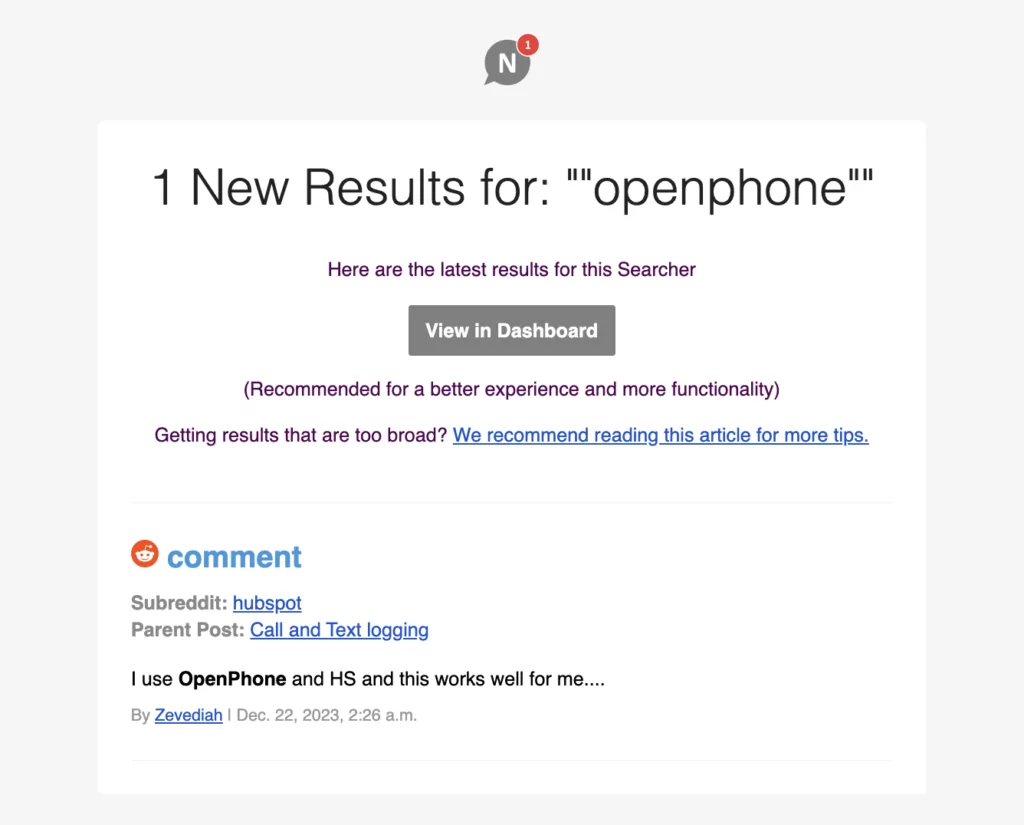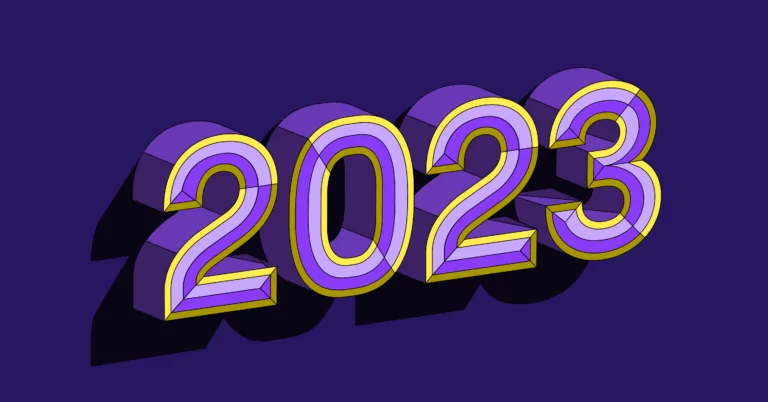The end of December is usually about two things for me: staying sane amid the ever-growing “before the holidays” to-do list and reflecting on the year passing by. This year is no different.
When I look back on 2023 for OpenPhone, the first word that comes to mind is transformational.
This was the year when we crossed the 100-employee mark and reached an important revenue milestone. It was also the year we had to reinvent ourselves (as a company and as founders) since most things on our path from 50 to 100 employees broke.
Let me bring you on our 2023 journey and share my takeaways. This will, hopefully, be useful for fellow founders or anyone curious about what it’s like to be at a scaling startup.
Focus on the fundamentals (mission and values)
Early on in the startup journey, founders interact directly with everyone on the team. There’s no concept of departments or managers — everyone works together, and the company values are implicit.
As the company grows and you hire leaders who build their own teams, being explicit about your values becomes important.
At the beginning of the year, we realized our values and mission had taken a back seat to the daily challenges of scaling OpenPhone.
Our original values were written back in 2019, and while they were nicely laid out on our website, they weren’t fully integrated with everything we did as a company, and many people didn’t know what they were (can’t blame them!). We knew we had to go back to the drawing board.
We did an assessment and realized:
- Some of the values no longer resonated with us
- Some values still held true but had to be defined better
- Some just needed to be reinforced
- New values had emerged that had to be codified
We took the time to do this exercise and arrived at a set of values we could be proud of, values that actually represent our culture.
For example, one of the new values we’ve added is being relentless, inspired by the world’s fastest land animal — the cheetah 🐆. Speed is the best competitive advantage startups have, and losing momentum, even temporarily, makes it hard to regain it. But speed alone is not enough. Running fast, aimlessly, is a sure way to burn out. We needed to be both fast and focused. Being relentless, or as we call it internally, “cheetah mode,” carried us through 2023. It helped us face whatever the year threw at us head-on.
When it comes to the company mission, it was a similar evolution. Our old mission statement was way too broad and didn’t fully reflect the value we aimed to create for our customers.
Old: Our mission is to help businesses connect with the world effortlessly.
New: Our mission is to help small businesses build meaningful customer relationships effortlessly.
Making our mission more specific brought a lot of clarity to everything we do and re-energized the team. I’m also much more comfortable and proud sharing it, as you can tell. 🙂
But as good as our new mission and values may be, it wasn’t enough just to list them. We had to embed them in everything we did.
Here are some ways in which we’ve done this so far:
- We created a Slack channel for giving kudos to folks for living company values.
- Our bi-weekly All Hands agenda is designed to amplify our mission and values and keep them top of mind.
- Values are used in hiring and coaching.
- We’ve spun out several programs to amplify specific values. For example, we strive to be open and transparent. Mahyar, my co-founder and our CEO, publishes OpenLetter, a monthly newsletter for the team sharing the ins and outs of the business alongside his commentary. We have introduced OpenMind, a searchable Q&A database in Notion where leaders answer questions from across the company in the open.

Everything you’ve ever done is going to break
When I was told that OpenPhone would break when we scaled past 50 team members, I didn’t believe it. But that’s exactly what happened.
Suddenly, it felt like we went from a company focused on shipping products and delighting customers to one reacting to issues. Being fully remote added to the challenge.
When we investigated the cause, we realized this stemmed from two main things (or, more accurately, lack of):
- Alignment: A shared understanding of what’s important to the company, documented for everyone to see and explicit about trade-offs.
- System: Everything from your org design to the process you use to keep everyone rowing in the same direction.
Our ultimate goal has been to become a highly aligned, loosely coupled organization. We were inspired to adopt this organizational structure after it was introduced by Netflix. This is obviously a big topic and a long-term endeavor, but below I’ll share some examples of how we’ve achieved each.
Alignment
The single most impactful thing we’ve done to build alignment is creating a company strategy document in Notion.
We used the W framework as an inspiration and added our unique flavor. The end game is this exercise brings total clarity and a referenceable document for everyone to understand what’s important to the company and why. It’s a guiding principle for every team to ensure their work ladders up to key priorities.
System
At some point in the journey from 50 to 100 employees, the founder’s job will shift from building the product to building the company that builds and distributes the product. That change isn’t natural for most folks, myself included, but looking back at OpenPhone’s 2023, I realize how essential it’s been.
The two most impactful things we’ve done here in 2023:
- Org design and hiring: Identify the organization that will bring your strategy to life. This means recognizing key gaps in the company and hiring folks to fill them. For example, we started 2023 at OpenPhone with two big gaps in Finance and People. More on that a little later.
- Deliberate internal communication strategy: This is a mouthful, but I promise it’s not that complicated. This means a communication system that ensures the mission, values, and strategy you define are not collecting dust but are embedded in everything you do. For us, these were some of the key elements:
- Quarterly kick-off: reviewing the quarter that passed by, reflecting on results and learnings, and sharing approach for the next quarter
- Bi-weekly All Hands: opportunity to get the whole team together to share wins and learnings and reinforce mission and values
- OpenLetter: monthly newsletter sharing the key business metrics, wins, and learnings, alongside commentary from Mahyar
- OpenMind: searchable Q&A database in Notion where leaders answer questions from across the company
Bring on a Head of People and a Head of Finance before you need them
I know I’m not the only founder who wondered about when the right time was to bring on a People and a Finance leader. From what I know now, it’s before you think you need them. 🙂
Many founders postpone making these hires because they don’t see a direct impact on revenue and are focused on that transition from founder-led go-to-market to building sustainable motions. Yet, both are critical on the journey from 50 to 100 employees.
A great Head of Finance and Head of People will make sure your company is well-positioned for growth and make your life ten times easier.
If you haven’t prioritized these roles or you don’t think you’re ready to hire for them, here’s what a great Head of Finance and a Head of People do for companies at this stage.
Finance
- Helps the business do forecasting with a lot more confidence
- Owns headcount and budget planning
- Ensures the overall health of the business with every macro and micro decision that needs to be made
- Ensures you have accurate financial reporting
- Takes work that isn’t in your zone of genius off your plate (unless one of the founders is a Finance wizard or loves Accounting)
People
- Helps the organization navigate the start of the “scaling phase” by bringing enough process (but not process for the sake of it!) —- introduce light performance reviews, ensure consistent compensation review programs, coach managers
- Advises leaders on people-related challenges coming up in their teams
- Keeps the culture of the company alive and well through various programs, which is especially important for remote teams
- Takes work that isn’t in your zone of genius off your plate (unless one of the founders has experience in People functions)
Having Dylan and Rachel join us this year has been a critical milestone for OpenPhone.
Stay (even closer) to customers
A common piece of advice startups get in the early days is to “do things that don’t scale.” But as the company grows, founders are often told to shift the mode of operation to doing things that scale. This mindset can be very dangerous for staying close to customers.
Many founders start off knowing every single customer of their product, and as the company grows, they move further away because they rely on other folks — sales reps, CSMs, PMs, and user researchers — to talk to customers. If founders aren’t directly talking to customers, they risk losing both empathy and a deep understanding of their needs.
My co-founder Mahyar and I constantly fear losing touch with our customers. We’ve tried to instill that sense of customer-centricity in the entire team.
In 2023, we made a concerted effort to stay even closer to our customers. Here are a few things we did:
- Fireside chat with customers during All Hands: We invite customers to our company All Hands calls regularly to share their stories and feedback directly with our team.
- Presence on social and support: I’ve been reviewing customer feedback on our social channels and support tickets using tools like Notifier and responding to some of them 1-1. I always learn something new and walk away with a fresh perspective.
- Pushing customer insights into Slack: We push every single customer review, NPS, and CSAT score to Slack to understand how to improve our product and customer service. We got inspired to push CSAT feedback by Parker Conrad, CEO and Co-Founder of Rippling. He shared more in this great interview.
- Insights from customer-facing teams: We have a “market intelligence” Slack channel for our Sales, Customer Success, and Customer Support teams to share their learnings from talking to customers with the rest of the company. Why did we win or lose a deal? Is there a feature gap that’s impacting customer happiness? It’s one of my favorite channels.

2024: Another transformational year ahead
After reflecting on OpenPhone’s 2023, I feel we’ve come a long way.
We’ve revised our company values, sharpened our focus, brought in leaders to shepherd us through our next phase of growth, reached important milestones, and fixed many things that broke.
Despite all the progress we’ve made, plenty of stuff is still broken, which means a lot of opportunity for growth ahead.
Scaling a startup is a constant journey of reinventing yourself. But, hopefully, your fundamentals, like mission and values, will stay constant.
Thanks for reading, and here’s to growing and transforming together in 2024!
PS – if you have any questions or thoughts on this piece, are going through similar scaling challenges, or if you are an OpenPhone customer and have feedback for us, please don’t hesitate to send me a note to dk at openphone.co
